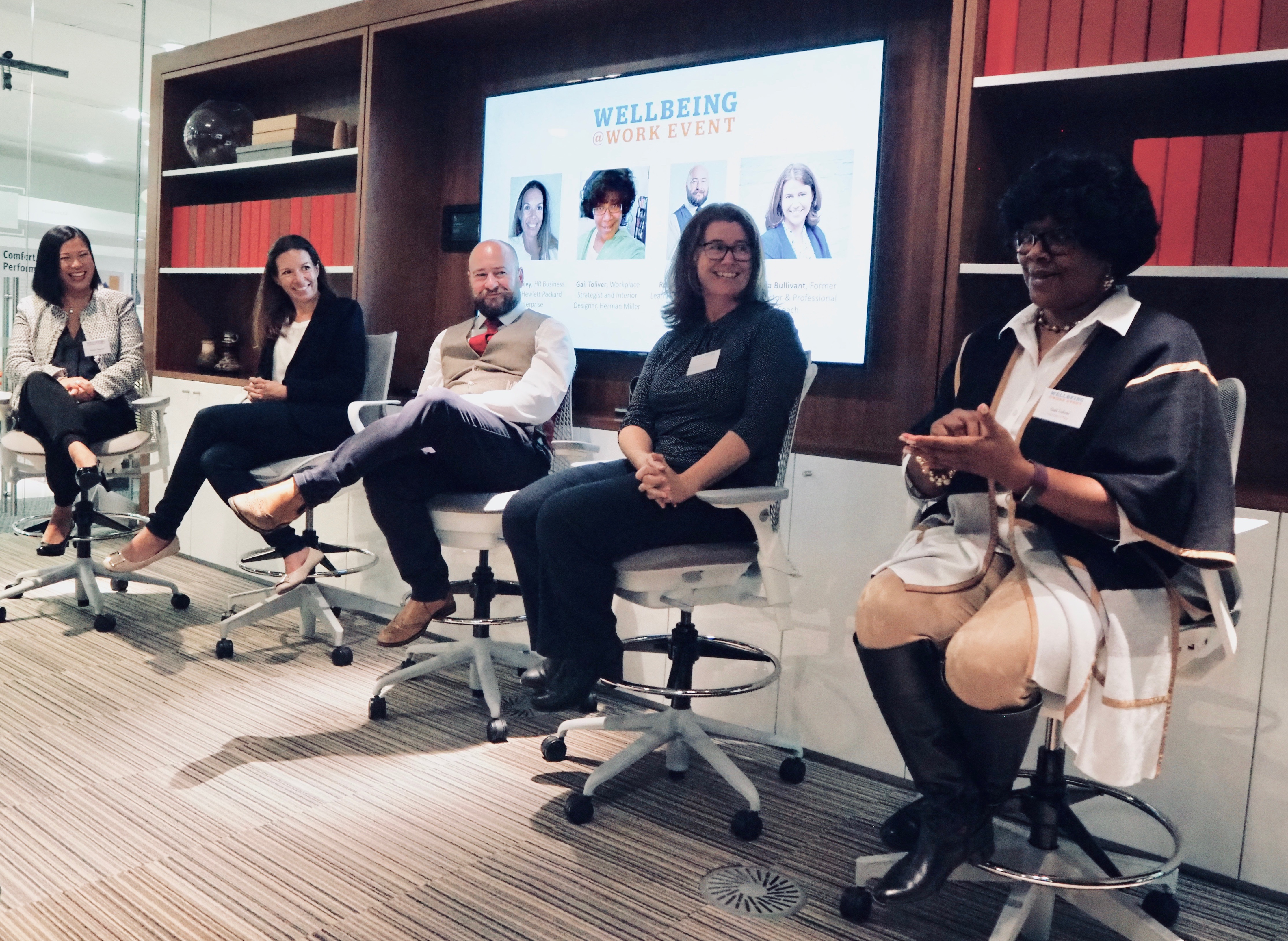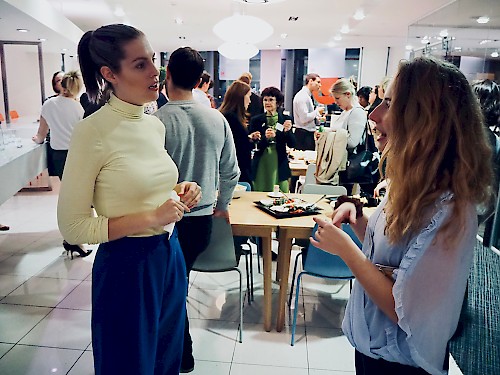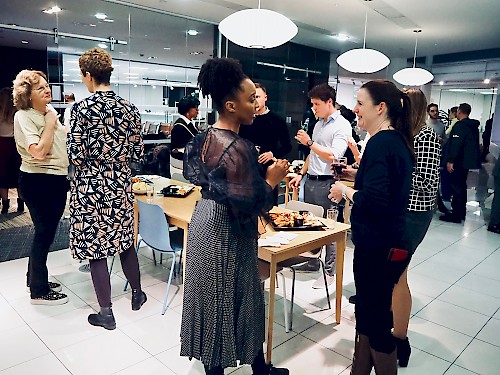
- BLOG
- Event
Wellbeing@Work Quarterly Meet Up - October 2019
With Autumn in full swing, “stress less and smile more” were just the words we all needed to hear after a busy working week. Fortunately, this was exactly how Sarah Mayo, Co-founder of Point 3 Wellbeing, began the energiser that kicked off the second Wellbeing @ Work quarterly meet up. After a series of exercises and a short, but effective, mindfulness session, she observed that the room seemed “more focused”.
Next, our CEO Kirsten Samuel hosted an insightful and inspiring panel discussion with four individuals who understand the value of prioritising workplace wellbeing: Emma Bailey (HR Business Partner at Hewlett Packard Enterprise), Robert Nunn (Head of Learning and Development at Grosvenor), Gemma Bullivant (HR Strategy Coach, Innecto Reward Client Director, and Grief & Loss Coach) and Gail Toliver (Workplace Strategist and Interior Designer at Herman Miller). So, what key points did we take away?
- Keep it simple: During an off-site meeting in 2016, Emma laid the foundations for a brilliant business-led culture programme called ‘Inspire’. Inspire diverges away from the usual ‘customer first’ approach, and instead prioritises employees and customers. There are two branches to Inspire: (1) Development (personal and professional) and (2) Engagement (recognition and wellness). Simple initiatives include Wellness Fridays, whereby people can go home at 2pm every 2nd Friday of the month. At the company’s quarterly meetings, the MD even discusses how he spends this time in order to set an example for his employees. For Emma, if an initiative doesn’t fit the ethos of Inspire, it won’t be included. In other words, simplifying workplace wellbeing initiatives is crucial in ensuring their uptake.
- Focus on personalisation: When Robert and his team set out to explore the characteristics of a great leader, they found a strong link between performance and resilience. Instead of opting for the conventional approach whereby senior management implements a strategy for their employees to adopt, they promoted a grass-roots approach that centred on the individual’s needs. Employees were empowered to understand their own resilience through a heart rate monitor. In allowing them to take ownership of their data, employees became genuinely interested in their wellbeing. This overcame the common obstacle of superficial engagement which prevents long-lasting behaviour change. Have the courage to experiment and ditch the strategy – everything else will follow.
- View an employee as a whole person: Gemma perceives an employee as an individual who cannot be separated from their personal life. Their priorities differ as they go through lifecycles, for example, someone in their 20s will have different values to someone in their 50s. The advantage of a wholesome perspective is that it lets the company help employees through key milestones. More specifically, as a grief and loss coach, she believes that a holistic understanding not only supports the individual through tough periods, but it also allows the employer to understand ‘blips’ in their performance. Therefore, much like Robert, Gemma feels that flexibility and personalisation are important. This is because it opens up the talent pool, and more crucially, generates trust between the individual and the employer.
- Prioritise movement: Gail’s focus is movement. Similar to Robert’s views on strategy, she doesn’t believe that people should be forced to take charge of their wellbeing because coercion often fails. However, Herman Miller’s internal programme ‘Strive’ is voluntary and centres more on nudges, like placing the healthier snacks on full display. One great top tip stood out: the 20 20 20 rule. Every 20 minutes, you should look away from your computer about 20 metres ahead for 20 seconds, because this will help prevent the onset of headaches. If we combine this with her mantra: ‘sit, stand, repeat’ where we move every 5-25 minutes, then our wellbeing will be right on track.
During the Q&A, the big focus was on financial wellbeing, which raised some interesting questions:
- Has our consumerist society led us down a one-way path where we now lack the discipline to be financially responsible, or are we just missing the fundamental education required to manage our finances?
- How can we make financial wellbeing initiatives proactive rather than reactive?
- What are the financial concerns prevalent in different lifecycles?
Once the evening drew to a close, a wine reception provided by our hosts Herman Miller allowed the audience and speakers to explore the wealth of information that had been shared during the event; we were spoilt with a generous spread of drinks and food in their uber modern Aldwych office and interesting conversation was by no means in short supply.
It’s safe to say that these were all the ingredients required to create another inspiring and informative evening, with which we were absolutely delighted to be involved.
 .
. 
